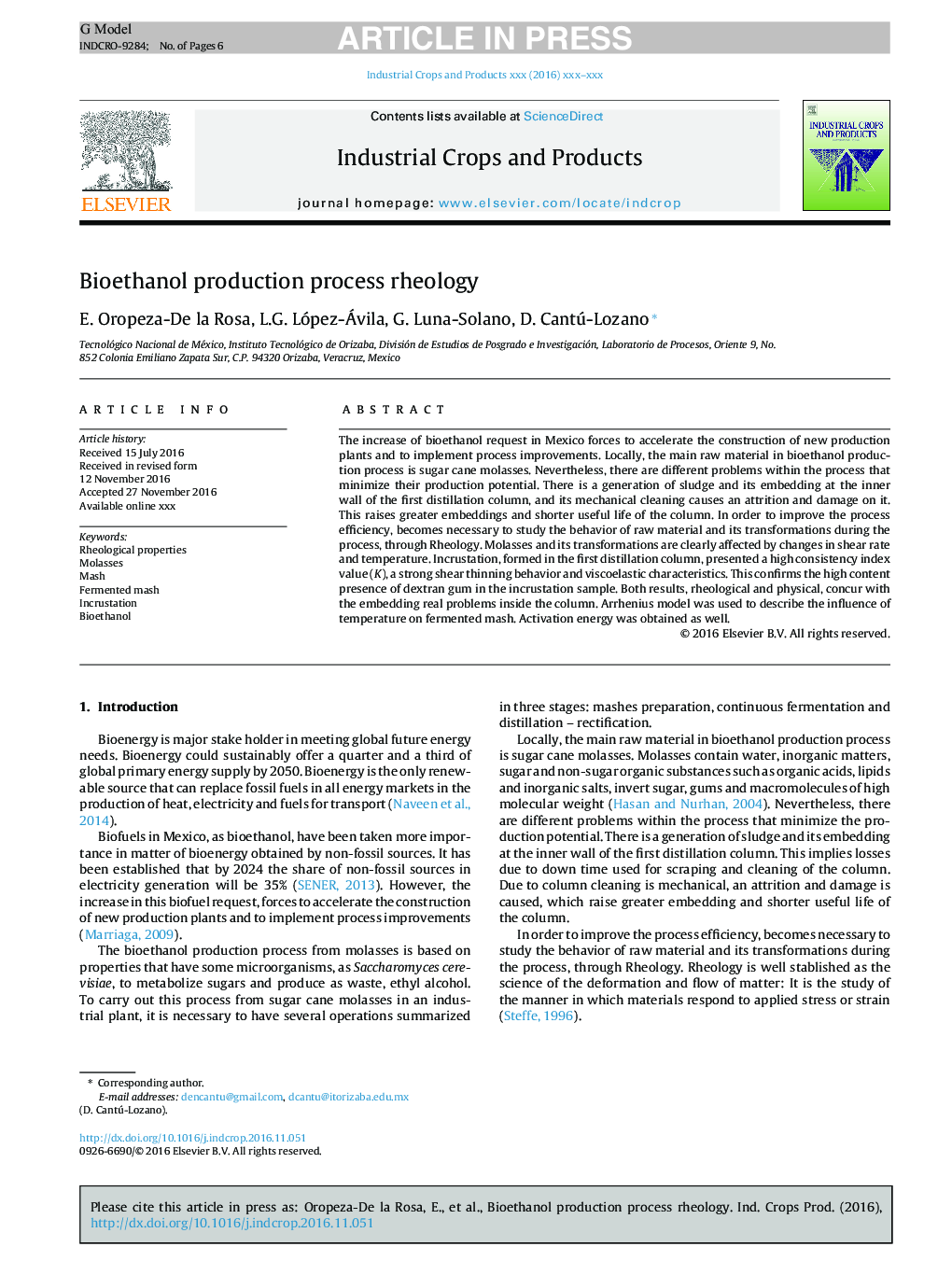| Article ID | Journal | Published Year | Pages | File Type |
|---|---|---|---|---|
| 5762008 | Industrial Crops and Products | 2017 | 6 Pages |
Abstract
The increase of bioethanol request in Mexico forces to accelerate the construction of new production plants and to implement process improvements. Locally, the main raw material in bioethanol production process is sugar cane molasses. Nevertheless, there are different problems within the process that minimize their production potential. There is a generation of sludge and its embedding at the inner wall of the first distillation column, and its mechanical cleaning causes an attrition and damage on it. This raises greater embeddings and shorter useful life of the column. In order to improve the process efficiency, becomes necessary to study the behavior of raw material and its transformations during the process, through Rheology. Molasses and its transformations are clearly affected by changes in shear rate and temperature. Incrustation, formed in the first distillation column, presented a high consistency index value (K), a strong shear thinning behavior and viscoelastic characteristics. This confirms the high content presence of dextran gum in the incrustation sample. Both results, rheological and physical, concur with the embedding real problems inside the column. Arrhenius model was used to describe the influence of temperature on fermented mash. Activation energy was obtained as well.
Related Topics
Life Sciences
Agricultural and Biological Sciences
Agronomy and Crop Science
Authors
E. Oropeza-De la Rosa, L.G. López-Ávila, G. Luna-Solano, D. Cantú-Lozano,
